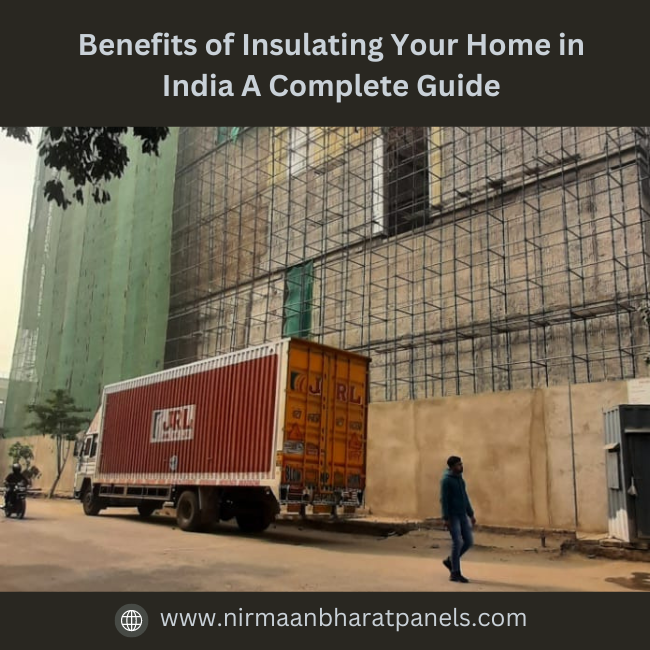Insulating your home in India can bring about numerous benefits, contributing to both your comfort and energy efficiency. Here’s a comprehensive guide outlining the advantages of home insulation in the Indian context:
Table of Contents
Toggle1. Energy Efficiency:
Reduced Energy Consumption: Insulation helps in maintaining a stable temperature inside your home, reducing the need for excessive heating or cooling.
Lower Energy Bills: With better temperature regulation, your reliance on air conditioning and heating systems decreases, resulting in cost savings on energy bills.
2. Comfort Improvement:
Consistent Temperature: Insulation helps maintain a consistent indoor temperature, providing comfort throughout the year, especially during extreme weather conditions.
Noise Reduction: Certain insulation materials act as sound barriers, reducing external noise and creating a quieter living environment.
3. Climate Adaptation:
Hot Climate Benefits: In India, where summers can be extremely hot, insulation helps in keeping homes cooler by blocking external heat.
Cold Climate Benefits: In colder regions, insulation retains indoor heat, preventing it from escaping, and thus, reducing the need for excessive heating.
4. Moisture Control:
Prevention of Mold and Mildew: Insulation helps in controlling moisture levels, reducing the risk of mold and mildew growth, which is particularly beneficial in humid climates.
5. Long-Term Cost Savings:
Reduced Maintenance Costs: Proper insulation can extend the lifespan of your heating and cooling systems by reducing their workload, leading to lower maintenance costs.
Increased Property Value: An energy-efficient home with insulation is more attractive to potential buyers and can increase the overall value of your property.
6. Environmentally Friendly:
Lower Carbon Footprint: Reduced energy consumption means lower greenhouse gas emissions, contributing to a more sustainable and eco-friendly lifestyle.
7. Government Incentives:
Subsidies and Rebates: In some cases, governments may offer incentives such as subsidies or rebates to encourage home insulation as part of energy conservation initiatives.
8. Types of Insulation Suitable for India:
Reflective Insulation: Effective against radiant heat, suitable for hot climates.
Fiberglass Insulation: Provides thermal resistance, suitable for various climates.
Polyurethane Foam Insulation: Excellent for moisture control and insulation in humid conditions.
9. Professional Installation:
Ensure Effectiveness: Proper installation by trained professionals is crucial to ensure that insulation performs optimally.
10. Considerations:
Local Climate: Choose insulation materials based on the specific climate conditions of your region.
Budget: Consider your budget constraints and choose insulation materials that offer the best balance between cost and effectiveness.
Role of EPS Panels in Insulating Your Home in India
Expanded Polystyrene (EPS) panels play a crucial role in insulating homes in India, providing an effective solution to combat the country’s diverse climate conditions. These panels are lightweight, durable, and boast excellent thermal insulation properties, making them ideal for maintaining a comfortable indoor environment. In a country where extreme temperatures are prevalent, EPS panels help regulate indoor temperatures by preventing heat transfer, thereby reducing the need for excessive heating or cooling. Additionally, these panels contribute to energy efficiency, leading to cost savings on utility bills. The versatility of EPS panels allows for easy installation in various parts of a home, enhancing overall insulation and minimizing the environmental impact. As a sustainable and cost-effective choice, EPS panels have become an integral component in the construction and insulation of homes across India.
In summary, insulating your home in India offers a range of benefits, including energy efficiency, comfort improvement, and long-term cost savings. Consider the local climate, available insulation materials, and seek professional advice to make informed decisions for an effective and sustainable home insulation solution.



